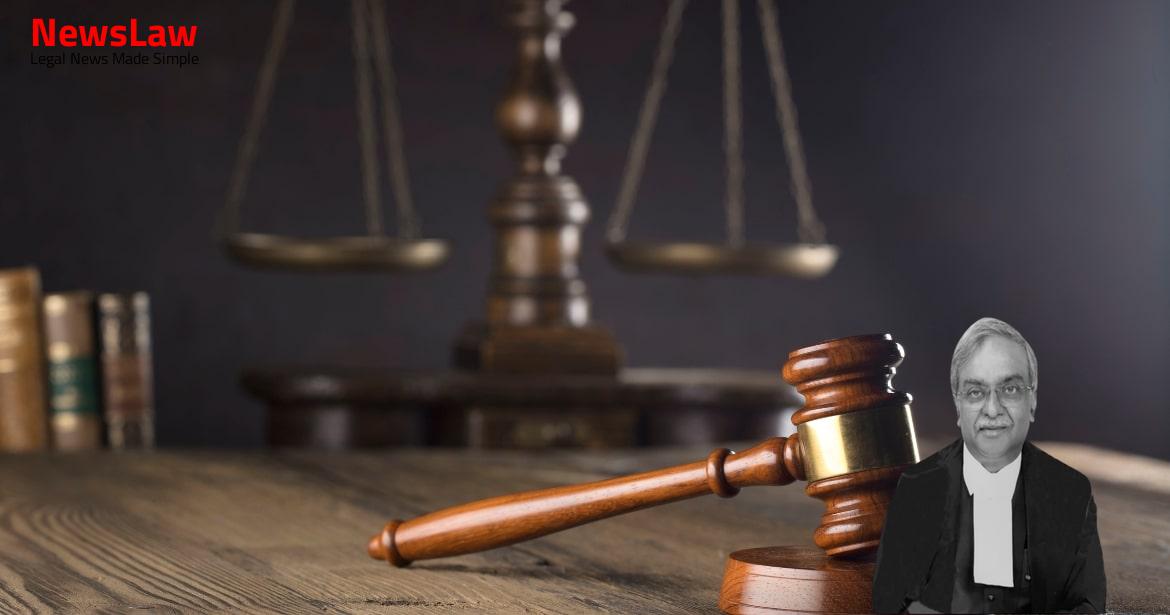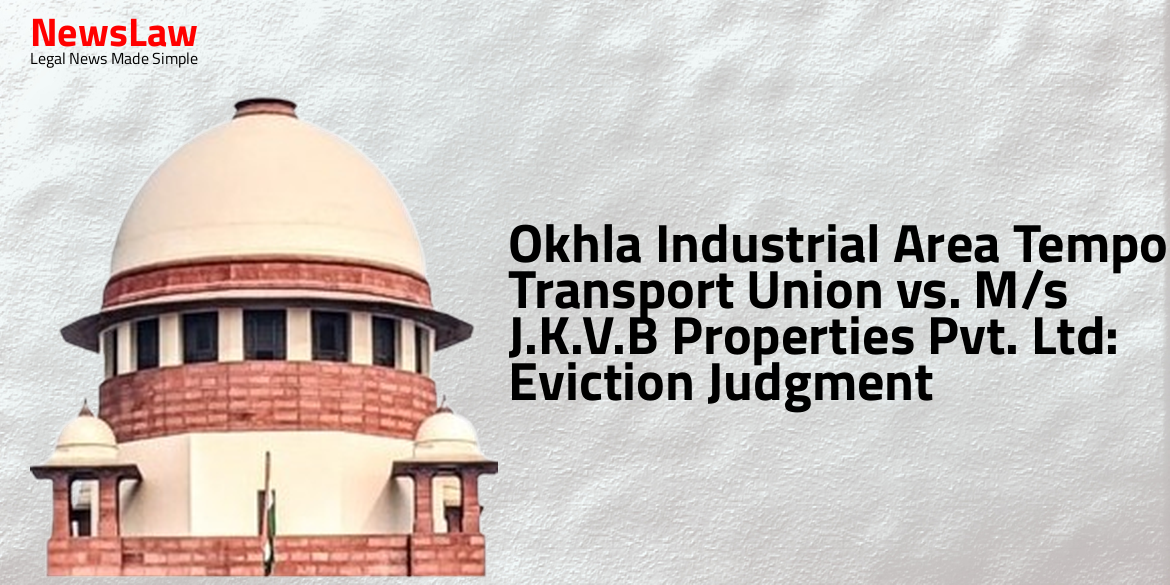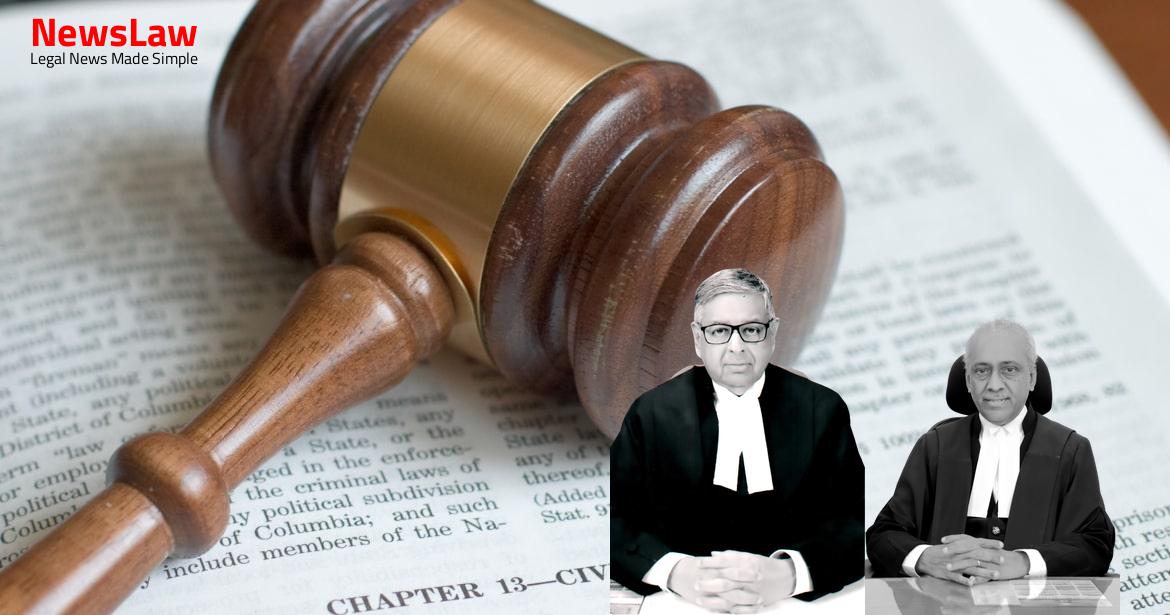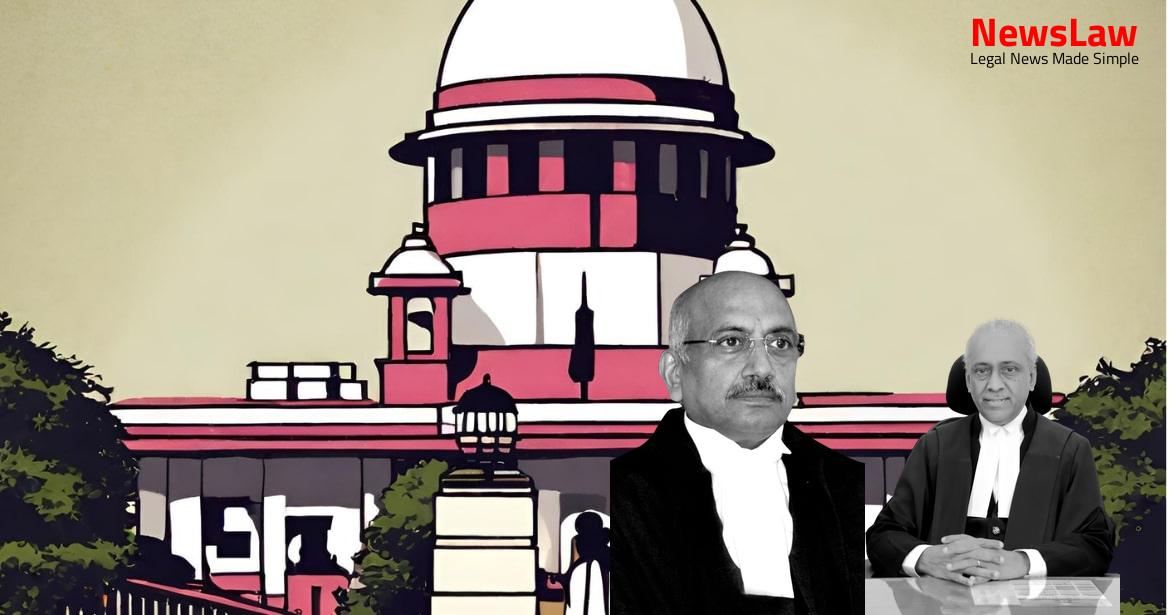The analysis section delves into the unfortunate errors and injustices suffered by the appellant during the NEET examination process. It emphasizes the positive duty of the state to ensure inclusive education and reasonable accommodation for persons with disabilities. The section criticizes ambiguities in the NEET Bulletin and lack of proper training for examination center personnel. It underscores the need for rectifying injustices faced by the appellant, as mandated by the RPwD Act 2016.
Facts
- The appellant suffers from Dysgraphia, a specified disability listed in the RPwD Act 2016.
- The Guidelines for Written Examinations issued by the Ministry of Social Justice and Empowerment in 2018 are to be followed by examining bodies, including the first respondent.
- The appellant approached the Grant Medical College on 28 July 2021 in anticipation of the NEET exam.
- The High Court directed the first respondent to make a decision regarding the appellant’s application for re-appearing in the NEET.
- The appellant lodged a protest with the first respondent on 12 September 2021 after the allocated examination center did not provide her with the compensatory hour mandated for PwD candidates.
- The first respondent considered granting proportionate marks to the appellant, but the sheer number of candidates appearing for the exam posed a logistical challenge.
- The appellant’s affidavit and relevant material clarified that the disability certificate required for NEET is issued after the results are declared, not before the exam.
- The High Court dismissed the appellant’s petition under Article 226 of the Constitution, leading to the appeal.
- The High Court noted that the first respondent incorrectly stated that the appellant’s case would be considered with a certificate from a specific center in Appendix VIII-B.
- The invigilators did not rectify a mistake leading to a mix-up in the distribution of test booklet codes and OMR sheets for six candidates.
- The High Court declined to entertain the petition despite the appellant’s argument against the requirement of a certificate from Appendix VIII-B.
- An ad-interim order of 28 October 2021 of the Court regarding a Special Leave Petition by the first respondent was considered.
- The Division Bench dismissed the petition for failure to produce the Appendix VIII-A certificate on the day of NEET.
- The first respondent misunderstood the relaxations granted to a student with a specified disability, leading to dismissal of the writ petition.
- The High Court vacated its interim order and dismissed the writ petition based on a Court’s interim order of 28 October 2021.
- This Court stayed an interim order of the High Court for a fresh examination in a case and directed NTA to hold a fresh examination for two candidates.
- The Division Bench of the High Court dismissed the appellant’s writ petition on 29 October 2021.
- The Court requested the Solicitor General to suggest a course of action for two students affected by invigilator fault.
Also Read: Electoral Malpractices in Mayor Election
Issue
- Appellant’s entitlement to an hour’s compensatory time due to PwD status under NEET Bulletin 2021 and Guidelines for Written Examination issued by the Ministry of Social Empowerment and Justice on 29 August 2018 is in question.
- Key issue before the Court revolves around the interpretation of relevant provisions and guidelines.
- Determination of whether the appellant qualifies for the compensatory time based on her PwD status is crucial.
- Court must consider the applicability and implementation of the NEET Bulletin 2021 and the Ministry’s Guidelines for Written Examination.
Also Read: Balancing Power and Transparency: Electoral Bonds Struck Down, Disclosure Mandated
Arguments
- Effective participation of students with disabilities in society is the main objective.
- Safeguards provided by the law must be enforced to address any breach of entitlement.
- Authorities must not ignore injustice faced by students with disabilities.
- The appellant claims negligence in complying with rights provided under RPwD Act 2016.
- A clear information bulletin is necessary to distinguish rights available at different stages of the examination.
- Prejudice caused by improper application of examination norms is not acceptable.
- The examination process should rectify injustices faced by students.
- The NEET Bulletin 2021 drafting has caused confusion.
- The High Court’s directive in the case led to a miscarriage of justice.
Also Read: Recall of Resolution Plan Approval: Legal Analysis
Analysis
- The analysis section delves into the unfortunate errors and injustices suffered by the appellant during the NEET examination process.
- It highlights the wrongful denial of compensatory time, lack of clarity on PwD candidate entitlements, and failures of the examining body.
- The section emphasizes the positive duty of the state to ensure inclusive education and reasonable accommodation for persons with disabilities.
- It criticizes ambiguities in the NEET Bulletin and lack of proper training for examination center personnel.
- The analysis underscores the need for the first respondent to rectify the injustice caused to the appellant as mandated by the RPwD Act 2016.
- It concludes by affirming that the denial of relief for a fresh examination does not negate the responsibility to address the injustices faced by the appellant.
- Sub-section (5) of Section 3 requires the appropriate government to take necessary steps to ensure reasonable accommodation for PwD.
- Section 4 requires the appropriate government and all local authorities to take measures to ensure that women and children with disabilities enjoy rights equal with others.
- In the case of Vikash Kumar, UPSC relied on Civil Services Examination Rules 2018 to argue that only Persons with Benchmark Disabilities (PwBD) can have a scribe facility.
- Denial of reasonable accommodation to a Person with Disability (PwD) is considered discriminatory.
- In a case related to NEET, the option of re-examination for a single student was dismissed based on a previous judgment in National Testing Agency v. Vaishnavi Vijay Bhopale.
- A three-judge Bench of the court in Vidhi Himmat Katariya v. State of Gujarat emphasized the use of Appendix VIII-A certificate for admission to medical courses.
- Despite legal clarifications in Vikash Kumar, restrictions by NTA on facilities only to PwBD are noted as violations.
- Reservation as per Section 32 is available to PwBD, but other facilities under RPwD Act 2016 cannot be restricted by administrative orders.
- Inclusive education is crucial for social and economic inclusion, with specific provisions in the RPwD Act 2016 mandating measures to promote and facilitate it.
- The Act defines inclusive education and outlines various measures for promoting it, including modifications in curriculum and examination systems for students with disabilities.
- The duty to provide inclusive education extends to both children and adults with disabilities, with Chapter VI providing special provisions for persons with benchmark disabilities.
Decision
- Persons working for the first respondent and exam centres like that of the second respondent should be sensitised and trained regularly to deal with requirements of reasonable accommodation for PwDs.
- Steps taken by the first respondent must be communicated to the Court Registry by filing a status report within two weeks.
- The appeal is disposed of according to the terms mentioned.
- Any pending applications will be considered disposed of.
Case Title: AVNI PRAKASH Vs. NATIONAL TESTING AGENCY (NTA) (2021 INSC 781)
Case Number: C.A. No.-007000-007000 / 2021



